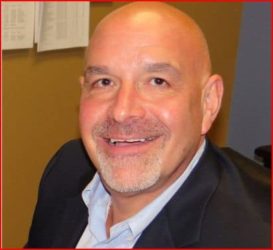
Nothing hurts an organization worse than a sulking employee, or an employee working against you behind the scenes. And there could be many reasons this scenario is playing out at your station. You may feel that person is not doing the job. That person may feel like he or she is overworked and getting no credit from you as a manager.
Communicating expectations to your team is as important as keeping the transmitter up and running. To succeed, you need people working for you who understand what you expect of them — and also understand the repercussions for not performing. What’s the best way to make sure you and everyone working for you are on the same page? Radio Ink reached out to a handful of managers who made our Best Managers in Radio list in 2017 and asked them this question: What do you expect from the people you manage?
“I expect their best. Dedication and passion, for starters. If you don’t really care, why are you here? Willingness to change and to embrace change, because it’s coming whether you embrace it or not. Here in the Wausau- Stevens Point NRG cluster we’ve managed to retain or attract an incredible team of people who love what they do and whose enthusiasm is infectious. There is a lot of laughter here every day, and we never view that as a waste of time. Again, if you’re not having fun, why are you here?
Part of the fun is trying many new things, and having some of them work out. We’ve managed to get into digital sales in a big way because NRG made a significant investment in this area at the corporate level. How often does that happen? Thanks to making better use of all the talents available on the team, we recently started doing video production, still photography, and social media management for our clients — all things we never did before this year. And corporate has backed our plays in each of these areas. We have real freedom to experiment and take reasonable risks.
 Kurt Luchs
Kurt Luchs
General Manager
NRG Media
Wausau-Stevens Point,
Wisconsin
GET INVOLVED.
There’s no excuse for not taking responsibility when you see a problem growing. I count on my staff to accept responsibility and seek solutions for things that go wrong and give credit for positive developments. I expect them to have the courage to deliver bad news.
GENERATE IDEAS.
A common frustration is a lack of ideas. A person who is innovative and creative is a pearl to be treasured. I want to hear what they have to say; it’s my job to sift through ideas and decide which ones have merit. Often the best ideas sound crazy at first.
BE WILLING TO COLLABORATE.
It’s surprising how many people still resist collaboration or sharing credit, even though we know how much more we can achieve when we bring everyone to the table at once. There can be very practical reasons for this — for example, it may not be in someone’s financial interest to cooperate. But I expect people to trust that I will notice when they take an action.
BE WILLING TO LEAD INITIATIVES.
There’s no way of knowing how a challenging new project will turn out, so people are often reluctant to be associated with an untested idea. They duck under the radar screen rather than risk going up in flames. But I want people to raise their hands.
DEVELOP LEADERS AS YOU DEVELOP.
Too many people are selfish about their development. I want my direct reports to take as much interest in their subordinates’ development as they do in their own — if not more. Stay current.
There’s nothing more depressing than sitting in a meeting with people who don’t know what’s going on in the world. I expect people to read, to watch the news — not just because it makes them more interesting, but because what happens in the world affects what happens to us, to our marketplace, and to our competition.
DRIVE YOUR OWN GROWTH.
I expect people to seek perpetual education and development — not necessarily by going back to school, but by exposing themselves to new people and ideas.
BE A PLAYER FOR ALL SEASONS.
It’s one thing to sustain the behaviors I’ve described in good times. It’s easy to collaborate, to stick up your hand, to offer ideas, when sales and earnings are growing by 20 percent a year. But how do you behave when they’re in decline? I expect positive behaviors no matter what, and people who can live up to that stand out in my eyes. I always look for someone who can thrive in either circumstance, and I’m amazed at the number of people who can’t.
 Eric Mastel
Eric Mastel
VP/Market Manager
Cumulus Media
Savannah, Georgia
We are in the communication business. What I expect from my team is open and honest communication. We can solve just about any problem, make any situation better, and achieve greatness by working together. That starts with honesty and communication. We cannot fix a problem that we do not know exists. It is better to get out in front of an issue before it escalates. That type of honest communication requires courage and a solid foundation of trust with your manager.
I once had a manager who made us better by encouraging us to debate our different viewpoints, even when we all agreed. This was often annoying because we all wanted to get back to our work. I grew to appreciate its brilliance because those debates enabled us to generate even better ideas and solutions. After a spirited debate, once a decision is made and a plan is created, I expect the team to move forward in the same direction toward the execution of the plan and achieve that goal.
I always want to surround myself with smart managers who have strong ideas and opinions. They make me a smarter leader.
Mary Menna
Market Manager
Beasley Media Group
Boston
There are many different answers to this question, particularly because I oversee several departments. So, let’s stick with sales. The three highest priority items that my sales teams hear preached ad nauseam are:
A. PIPELINE MANAGEMENT.
Without a constantly consistently full pipeline of appointments and customer recommendation meetings, consistent revenue-building will never happen. I require two one-hour call sessions a week, to ensure that my sales teams are always working forward, and keeping their pipe and schedules full so as to keep their revenue growing.
B. PERSONAL ACCOUNTABILITY.
Every team member agrees in writing to be accountable for their goals monthly. This means weekly sales from every team member is required. Thus, it becomes easy to determine if there is a problem, particularly if their pipeline is full but sales are not forthcoming. This is when a sales manager starts digging deeper, scheduling in field rides, role-plays, planning additional training as needed, etc.
C. PROVIDING BEST-IN-CLASS CUSTOMER SERVICE.
This involves constant contact with their/our customers, updating their schedules and ad spots, always providing recommendations for freshening up the client’s program, providing courtesy reminders to clients if they fall behind in payments, face-to-face meetings with their clients to make them aware of new programs, packages, or events upcoming. It’s the plan of underpromising and overdelivering. It’s what keeps our customers, ours.
 P. Wayne Mulling
P. Wayne Mulling
South Carolina Regional
Market Manager
Community
Broadcasters






